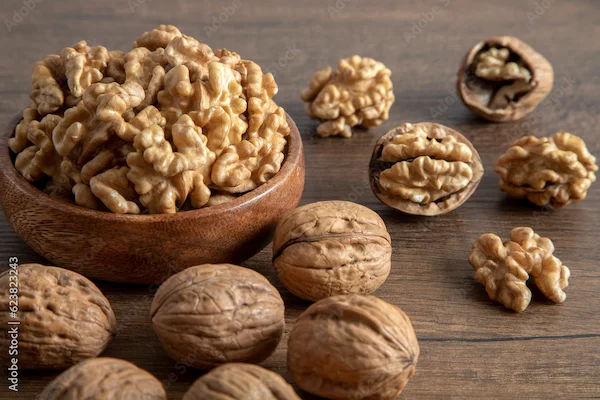Main Functions of the Kidney Explained
Learn about the four main types of dialysis: hemodialysis, peritoneal dialysis, CRRT, and nocturnal dialysis. Understand how each method works, its pros and cons, and tips to manage dialysis effectively.

Written by Dr. M L Ezhilarasan
Reviewed by Dr. Dhankecha Mayank Dineshbhai MBBS
Last updated on 13th Jan, 2026

Your kidneys are two bean-shaped organs located on either side of your spine, just below your rib cage. Though small in size, they play a vital role in keeping your body healthy. Let’s explore the key functions of your kidneys and why they are so important for your overall well-being.
1. Filtering Waste and Toxins
One of the most crucial jobs of your kidneys is to filter waste products and excess substances from your blood. Every day, your kidneys process about 120 to 150 quarts of blood to produce 1 to 2 quarts of urine, which contains waste like urea, creatinine, and excess salts. Without this filtration, harmful toxins would build up in your body, leading to serious health problems.
2. Balancing Fluids and Electrolytes
Your kidneys help maintain the right balance of water, sodium, potassium, and other electrolytes in your body. This balance is essential for:
- Regulating blood pressure
- Ensuring proper nerve and muscle function
- Preventing dehydration or fluid overload
If your kidneys aren’t working well, you may experience swelling (oedema), high blood pressure, or muscle cramps due to electrolyte imbalances.
3. Controlling Blood Pressure
Your kidneys produce a hormone called renin, which helps regulate blood pressure by controlling blood vessel constriction and fluid balance. If your kidneys are damaged, they may not manage blood pressure effectively, leading to hypertension (high blood pressure), which can further harm kidney function, creating a dangerous cycle.
4. Producing Red Blood Cells
The kidneys release erythropoietin (EPO), a hormone that signals your bone marrow to produce red blood cells. If kidney function declines, low EPO levels can lead to anaemia, causing fatigue, weakness, and shortness of breath.
5. Maintaining Bone Health
Healthy kidneys help regulate calcium and phosphorus levels by activating vitamin D, which is essential for strong bones. If kidneys fail to do this, you may develop bone weakness or diseases like osteoporosis.
Consult Top Specialists
6. Regulating Acid-Base Balance
Your kidneys help maintain the body’s pH balance by removing excess acids through urine. If this function is impaired, acidosis (too much acid in the blood) can occur, leading to fatigue, confusion, and even organ damage.
How to Keep Your Kidneys Healthy?
Since kidneys perform so many vital functions, taking care of them is essential. Here are some simple yet effective ways to maintain kidney health:
Stay Hydrated
Drinking enough water helps your kidneys flush out toxins. Aim for 6-8 glasses a day, unless advised otherwise by a doctor.
Eat a Balanced Diet
- Reduce salt intake to control blood pressure.
- Limit processed foods high in phosphorus (like sodas and packaged snacks).
- Include kidney-friendly foods like berries, apples, fish, and whole grains.
Control Blood Sugar & Blood Pressure
Diabetes and high blood pressure are leading causes of kidney disease. Regular check-ups and medication (if prescribed) can help protect your kidneys.
Avoid Smoking & Excessive Alcohol
Both can damage blood vessels, reducing kidney efficiency.
Exercise Regularly
Physical activity helps maintain a healthy weight and improves circulation, benefiting kidney function.
Get Regular Kidney Check-ups
If you have risk factors like diabetes, hypertension, or a family history of kidney disease, regular kidney function tests (KFT) can help detect problems early.
When to See a Doctor?
If you experience any of these symptoms, consult a doctor:
- Swelling in legs, ankles, or face
- Fatigue or weakness
- Changes in urine (foamy, dark, or less frequent)
- High blood pressure
- Persistent nausea or loss of appetite
Early detection can prevent serious kidney damage.
Conclusion
Your kidneys work tirelessly to keep your body clean and balanced. By understanding their functions and taking preventive steps, you can support their health and avoid complications.
If you have concerns about your kidney health, consider booking a kidney function test or consultation with a specialist through Apollo 24|7. Early care makes all the difference!
Consult Top Specialists
Consult Top Specialists

Dr. Hareesha Babu K
Nephrologist
25 Years • MBBS, MD (General Medicine), DM (Nephrology),FASN, FRCP(Glasg), FRCP (Edin)
Bangalore
Kidney & Hypertension Care, Bangalore

Dr. Pardha Saradhi
Nephrologist
9 Years • MBBS, MD-DNB (Gen. Med.), DNB (Nephro)
Hyderabad
Apollo Hospitals D R D O kanchanbagh, Hyderabad
(75+ Patients)

Dr. Sanjay Maitra
Nephrologist
24 Years • MBBS, MD (Int. Med.), DM (Nephro)
Hyderabad
Apollo Hospitals Jubilee Hills, Hyderabad
(100+ Patients)

Dr. Kity Sarkar
Nephrologist
15 Years • MBBS,MD(Genl. Med.), DrNB(NEPHROLOGY)
Kolkata
Dr. Kity Sarkar's Clinic, Kolkata

Dr. Aswini Kumar Panigrahi
Nephrologist
23 Years • MBBS, MD (Int. Med.), DNB Nephro
Hyderabad
Apollo Hospitals Jubilee Hills, Hyderabad
(225+ Patients)
Consult Top Specialists

Dr. Hareesha Babu K
Nephrologist
25 Years • MBBS, MD (General Medicine), DM (Nephrology),FASN, FRCP(Glasg), FRCP (Edin)
Bangalore
Kidney & Hypertension Care, Bangalore

Dr. Pardha Saradhi
Nephrologist
9 Years • MBBS, MD-DNB (Gen. Med.), DNB (Nephro)
Hyderabad
Apollo Hospitals D R D O kanchanbagh, Hyderabad
(75+ Patients)

Dr. Sanjay Maitra
Nephrologist
24 Years • MBBS, MD (Int. Med.), DM (Nephro)
Hyderabad
Apollo Hospitals Jubilee Hills, Hyderabad
(100+ Patients)

Dr. Kity Sarkar
Nephrologist
15 Years • MBBS,MD(Genl. Med.), DrNB(NEPHROLOGY)
Kolkata
Dr. Kity Sarkar's Clinic, Kolkata

Dr. Aswini Kumar Panigrahi
Nephrologist
23 Years • MBBS, MD (Int. Med.), DNB Nephro
Hyderabad
Apollo Hospitals Jubilee Hills, Hyderabad
(225+ Patients)




